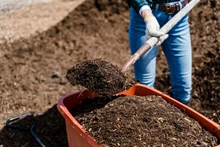
The Union Cabinet authorised the National Mission on Edible Oils - Oil Palm (NMEO-OP) on Wednesday, 18th August, 2021 with a budget of Rs 11,040 crore to boost local oil palm production over the next five years and lessen the country's reliance on imported edible oils.
The decision follows Prime Minister Narendra Modi's announcement of the new central scheme during his Independence Day speech at Red Fort on August 15th. The Cabinet approved the NMEO-OP with an emphasis on the northeast region and the Andaman and Nicobar Islands, with a budgetary outlay of Rs 11,040 crore, Union Information and Broadcasting Minister Anurag Thakur told the press.
The central government's portion of the entire outlay would be Rs 8,844 crore, while the states' contribution would be Rs 2,196 crore. According to an official announcement, this also includes viability gap financing. The present National Food Security Mission-Oil Palm initiative will be absorbed into the new plan.
According to Agriculture Minister Narendra Singh Tomar, the new plan seeks to cover an additional 6.5 lakh hectares of oil palm by 2025-26, bringing the total to 10 lakh hectares. Domestic crude palm oil (CPO) output is anticipated to increase to 11.20 lakh tonnes by 2025-26 and to 28 lakh tonnes by 2029-30 as a result of this.
The minister stated that the new program solves many difficulties encountered by farmers, adding that oil palm cultivation has been taking place in the previous several years and is currently being carried out in 12 states.
"Because oil palm farming requires at least 5-7 years to provide a profitable yield. Small farmers could not afford to wait for this long. Farmers were apprehensive about obtaining returns even if they were successful in planting owing to price fluctuations" he stated
Only 3.70 lakh hectares of land are now planted with oil palm. Although oil palm farming has potential in the north east, it has yet to take off due to a lack of processing industries and investment, he noted.
"This assurance would give Indian oil palm growers the confidence to expand their land and so enhance palm oil production" he added.
Viability Price:
In light of this, Tomar stated that the government has chosen to provide support under the NMEO-OP to further increase oil palm farming. The government will provide price certainty to oil palm producers producing Fresh Fruit Bunches for the first time (FFBs). According to him, this would be referred to as the 'viability price.'
The 'viability price' would be the five-year average CPO price multiplied by 14.3 percent, he said, adding that it will be determined yearly for the oil palm year (November to October).
A formula price of 14.3 percent of CPO will also be set, according to an official statement, and will be established on a monthly basis. The viability gap financing will be based on the viability price-formula price, and if necessary, it will be paid directly to farmers' accounts via direct benefit transfer.
Furthermore, the viability gap financing will provide confidence to farmers, and the sector will be required to pay 14.3 percent of the CPO price, which would gradually rise to 15.3 percent. The program has a sunset provision that expires on November 1, 2037.
To give the North-East and Andaman Islands a boost, the government said that it will cover a cost of 2% of the CPO price to guarantee that farmers get paid on par with the rest of the country. States that accept the method will benefit from the scheme's planned viability gap payment, for which they will sign a memorandum of understanding (MoU) with the central govt.
The scheme's second key goal, according to Tomar, is to significantly expand input help. Planting material support for oil palm producers has been doubled from Rs 12,000 per hectare to Rs 29,000 per hectare. In addition, he noted, maintenance and intercropping treatments have seen a significant rise.
"For the regeneration of old gardens, a particular help of Rs 250 per plant is being offered," Tomar added.
Various financial Assistance under NMEO – OP:
Seed gardens would be given assistance of up to Rs 100 lakhs for 15 hectares in the North-East and Andaman areas & Rs 80 lakhs for 15 hectares in the rest of India in order to alleviate the country's scarcity of planting material.
Apart from that, an assistance of Rs 40-50 lakhs is given for seed gardens. Half moon terrace cultivation, bio fence, and land clearance, as well as integrated farming, will be given special attention in the North-East and the Andaman areas.
For capital support to industry in the North East states and Andaman Islands, The program offers Rs 5 crore for building up a unit with a capacity of 5 tonne per hour with a pro-rata increase for higher capacity for the North East states and Andaman, he said, adding that this will lure the industry to these regions.
Oilseed Production Scenario:
When asked why the government was pushing oil palm over oilseeds, the minister stated that continual efforts have been made to increase output of oilseeds such as sunflower.
While oilseed yields have been growing, there has been a need to focus on crops with better productivity in order to close the supply-demand imbalance in the country as soon as possible. When compared to other oilseed crops, oil palm generates 10 to 46 times more oil per hectare and yields about 4 tons of oil per hectare. As a result, he believes it has great potential for cultivation.
According to the ICAR research, oil palm can be grown on 28 lakh hectares across the country, including more than 9 lakh hectares in the north eastern area.
"To fulfill domestic demand, we are importing edible oils. The maximum amount of CPO is imported. At the moment, it accounts for 56 percent of total edible oil imports” According to Tomar, the new program intends to minimise reliance on imports.
He said that the new program will greatly assist oil palm producers by increasing capital investment, creating jobs, reducing import dependency, and increasing the farmers' income.











